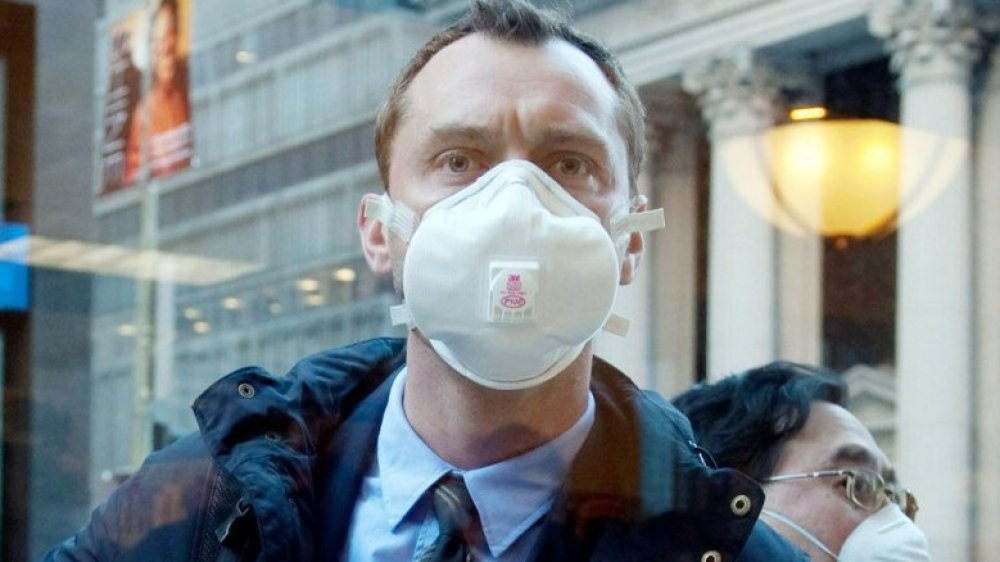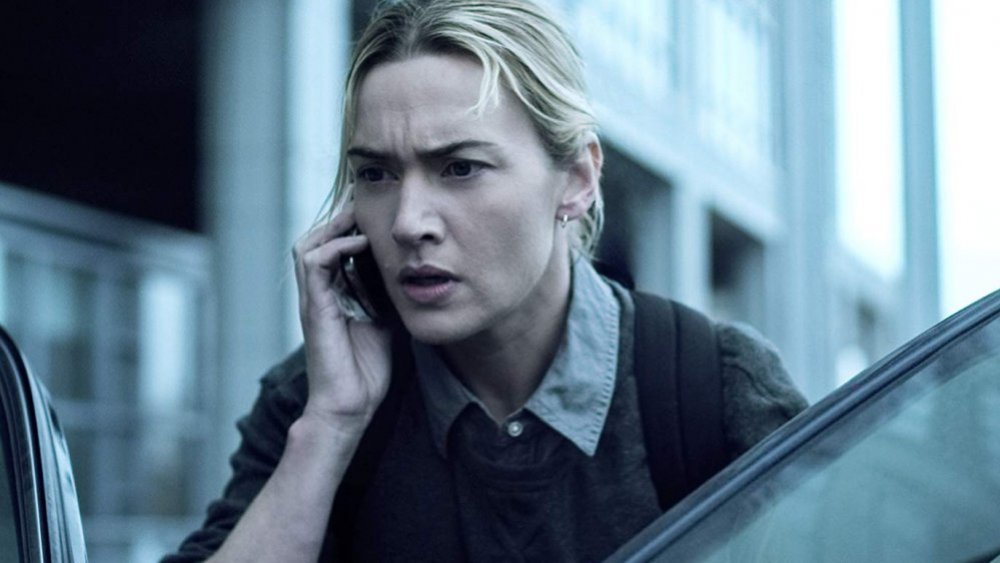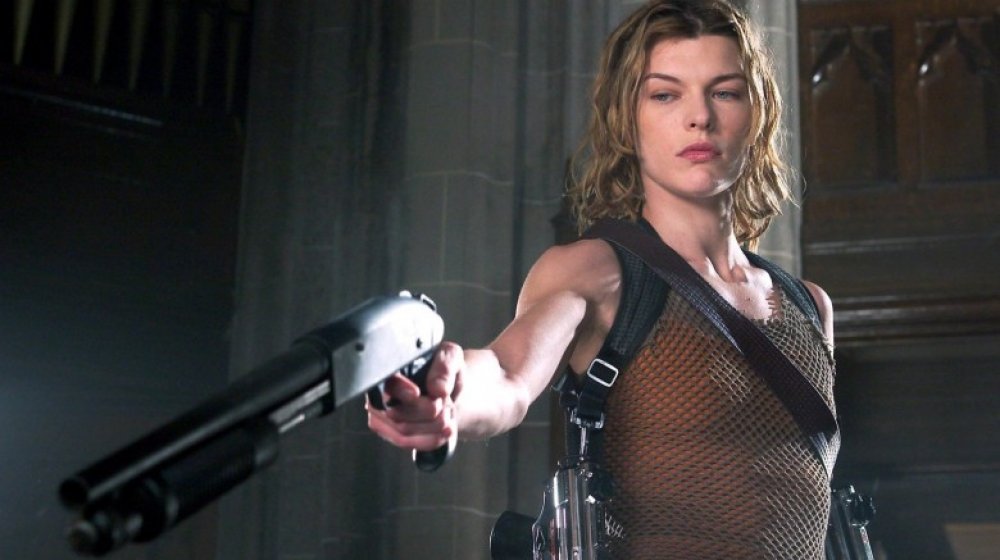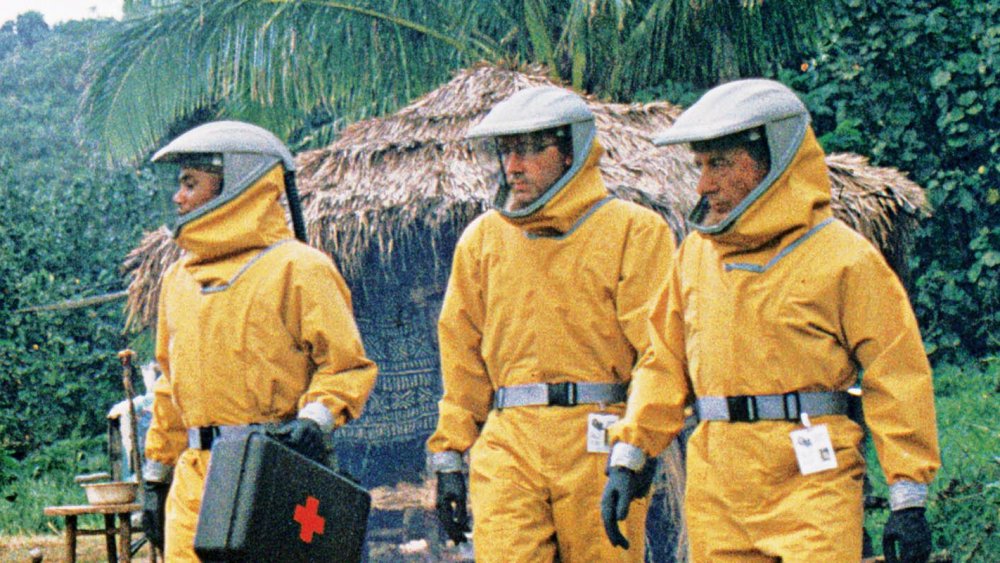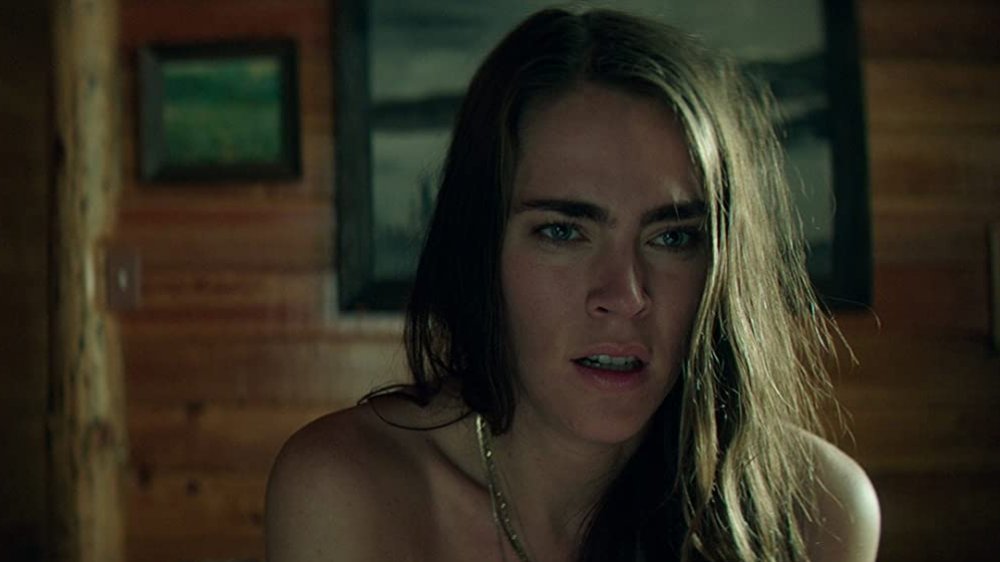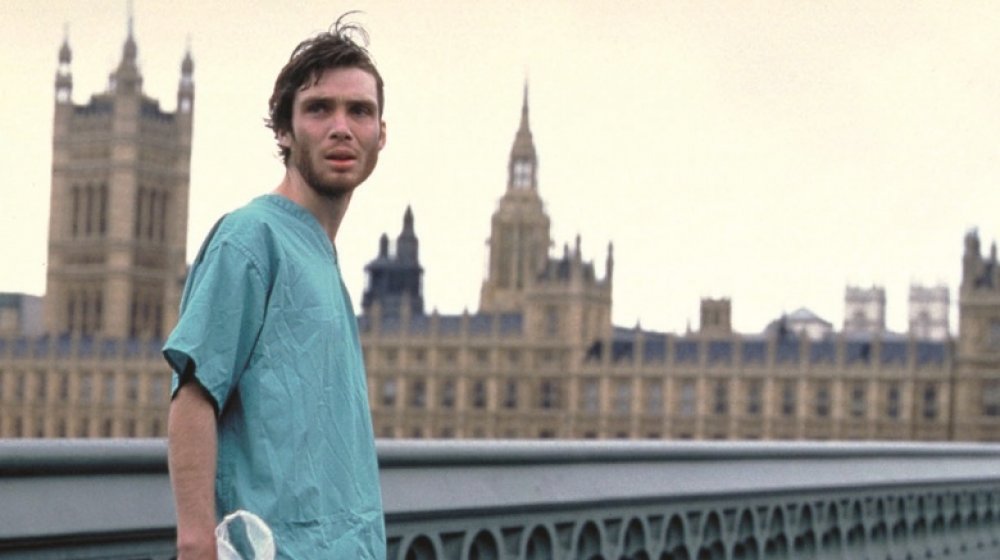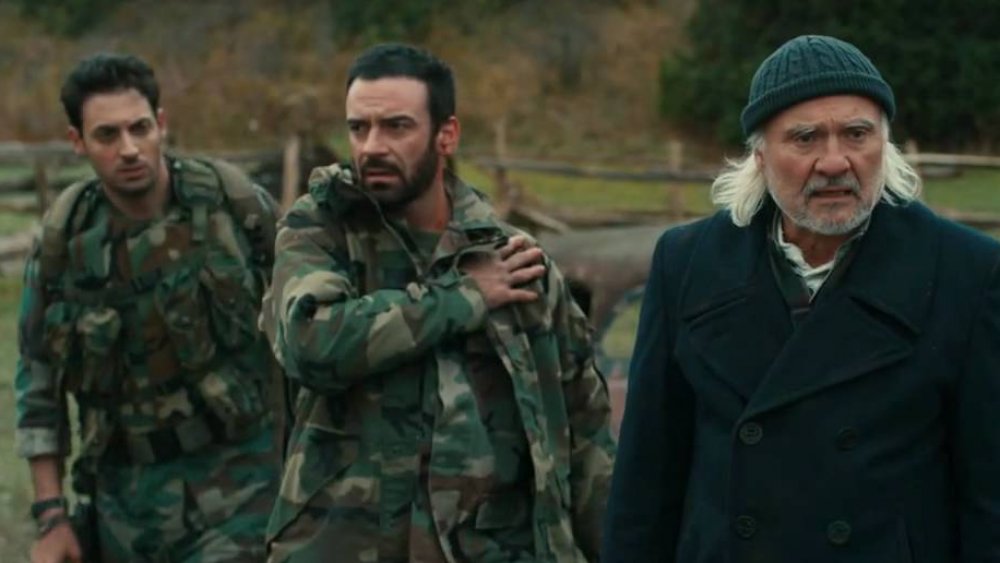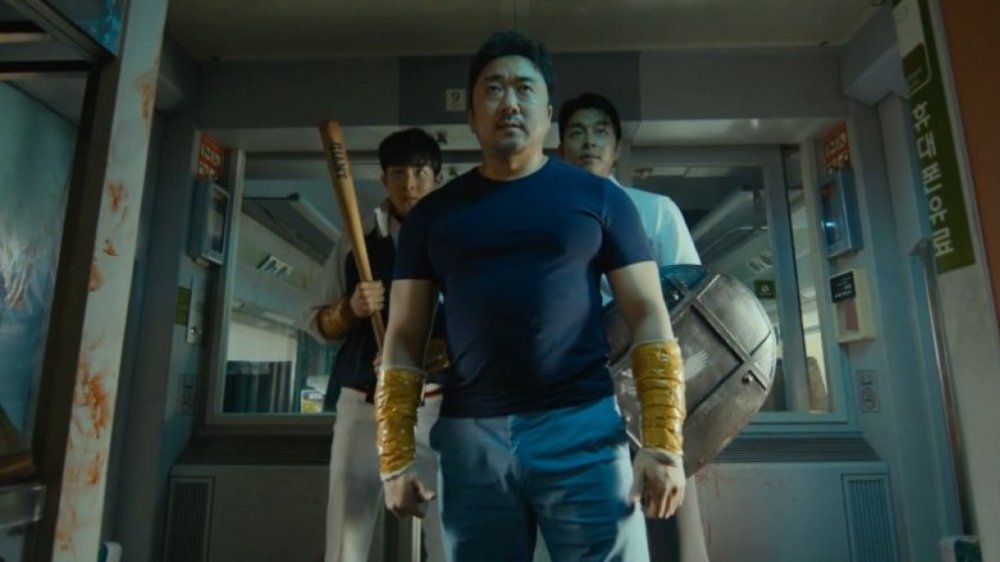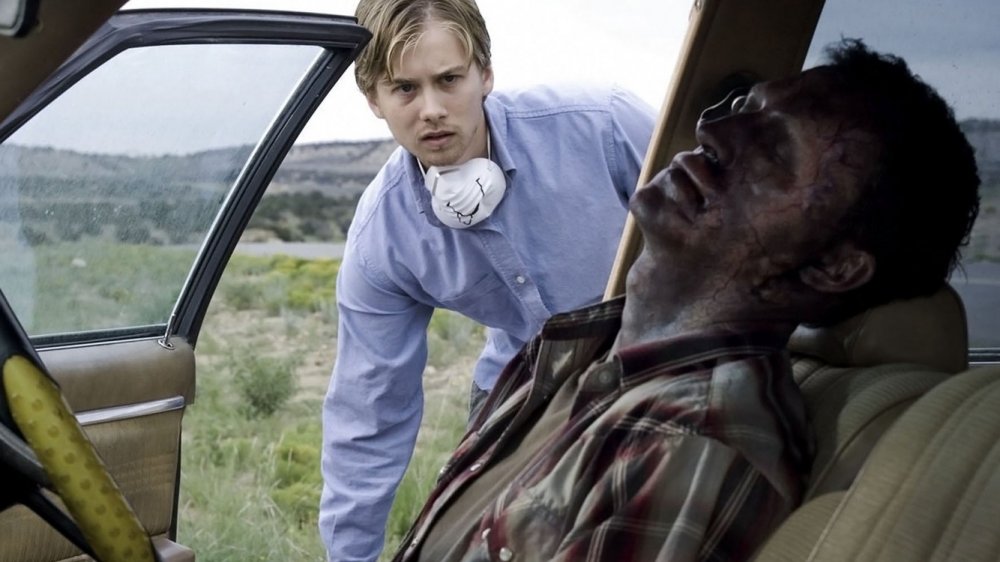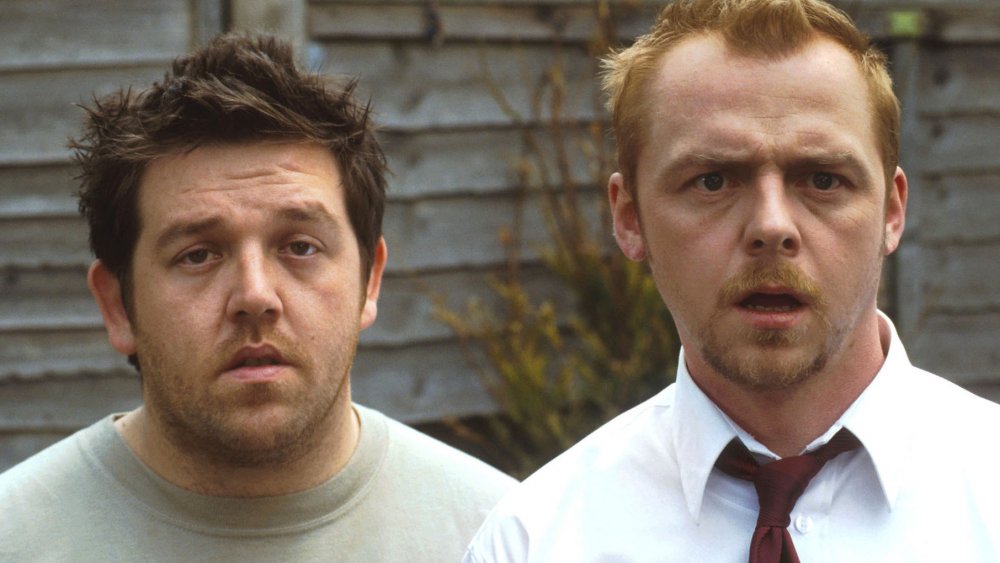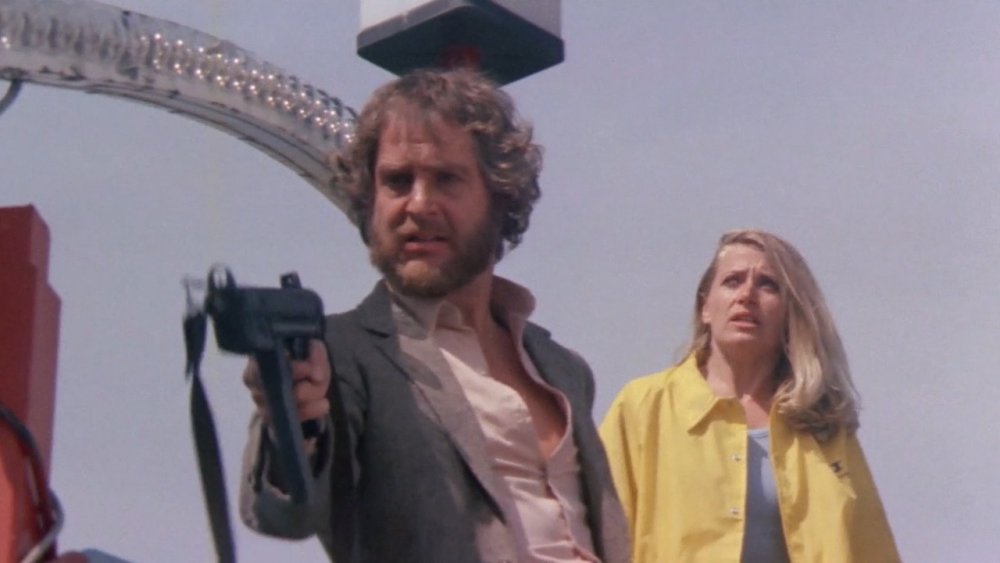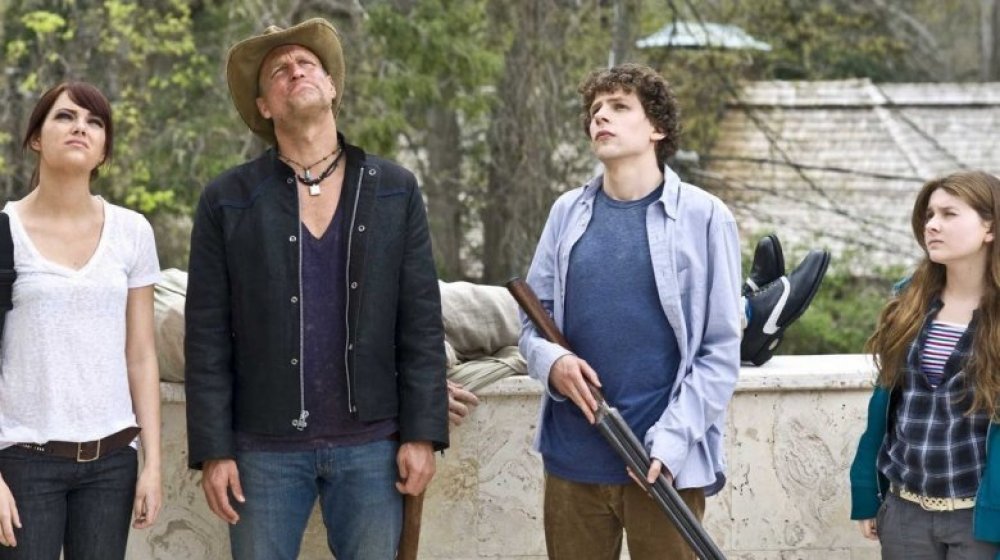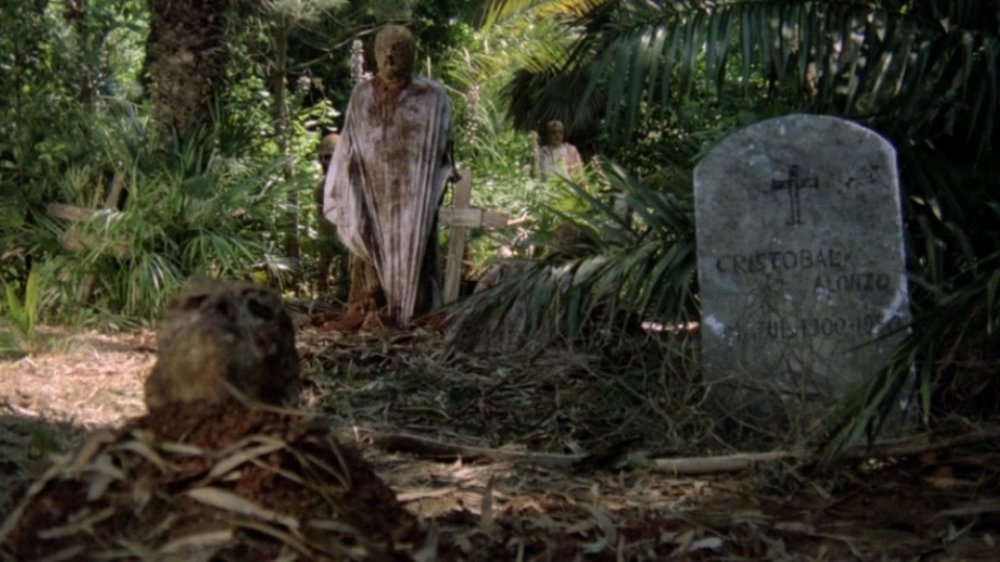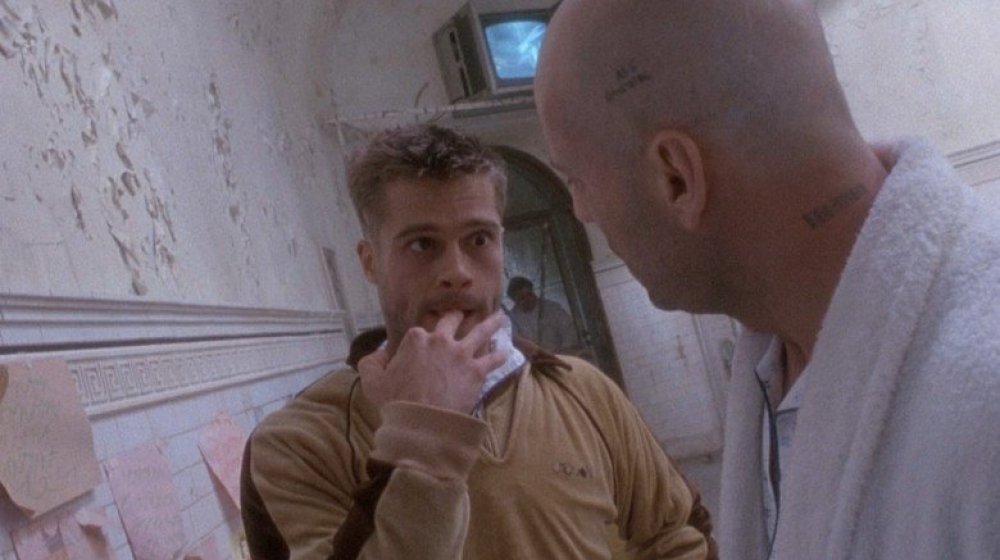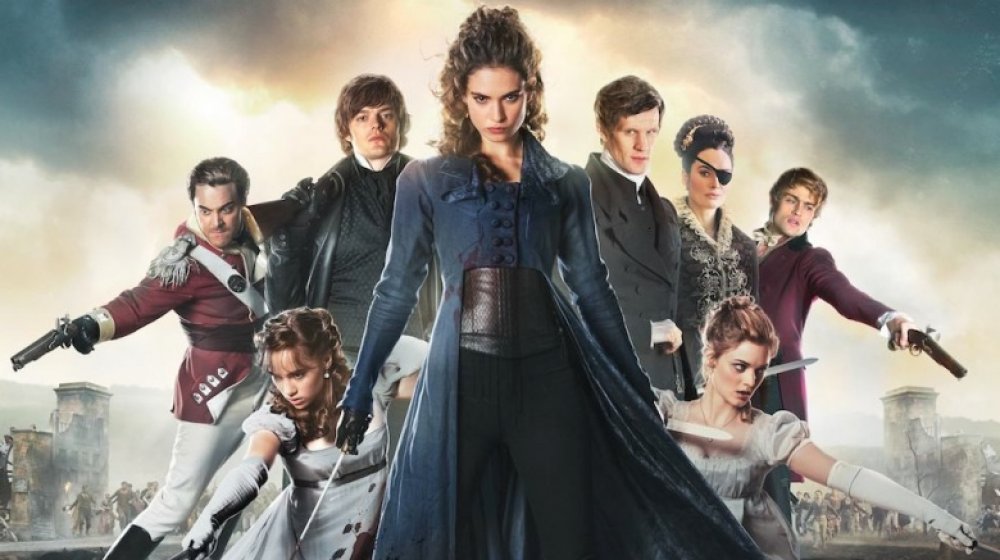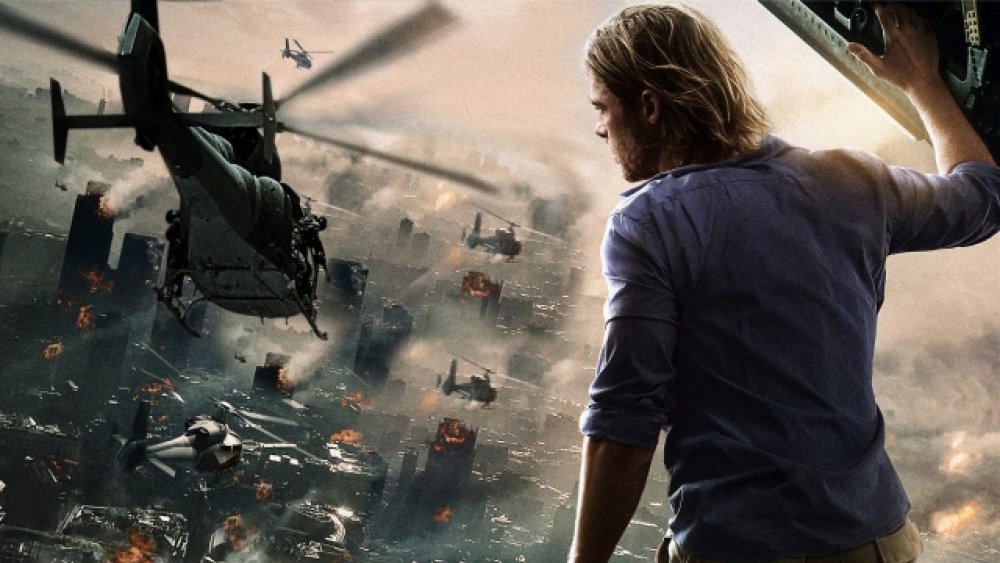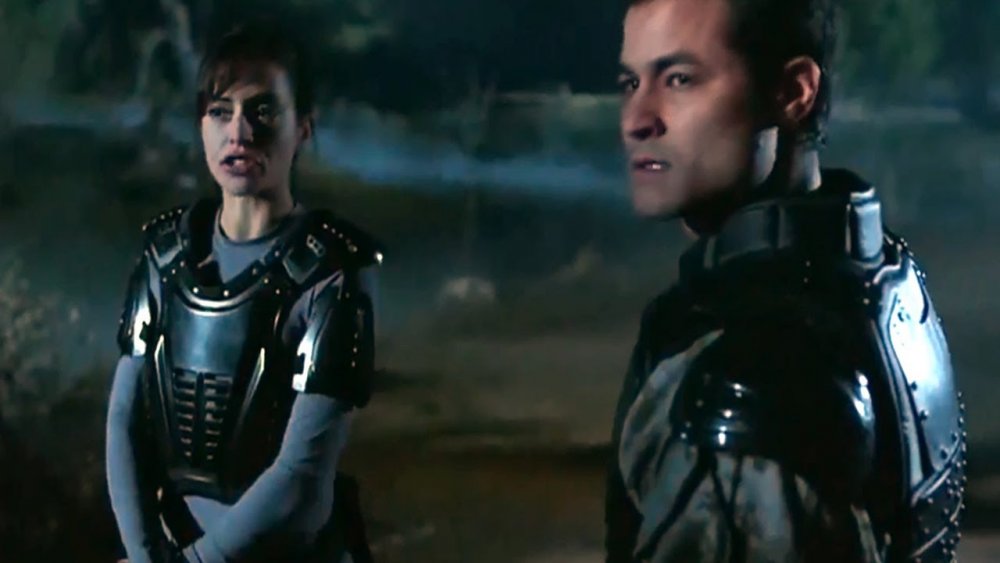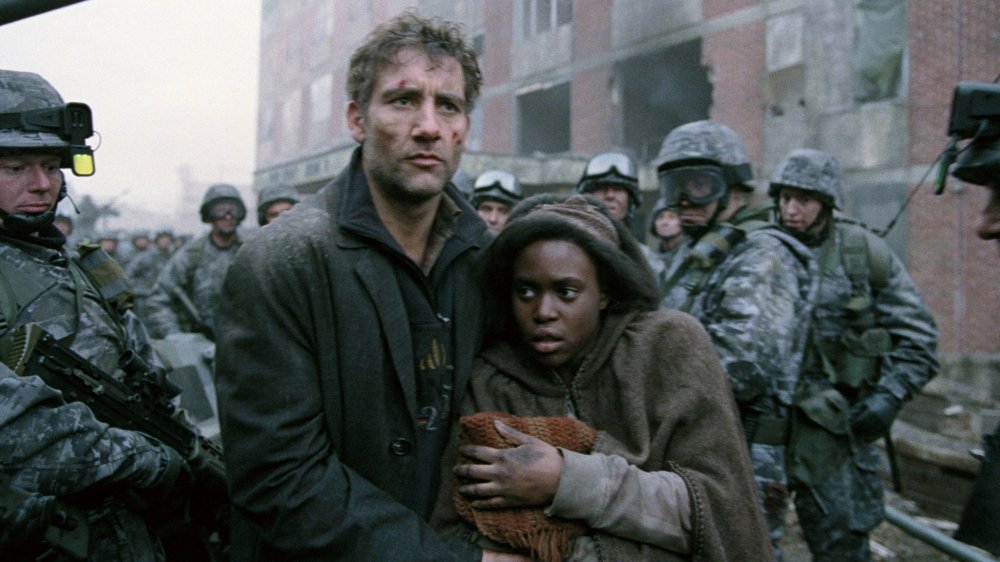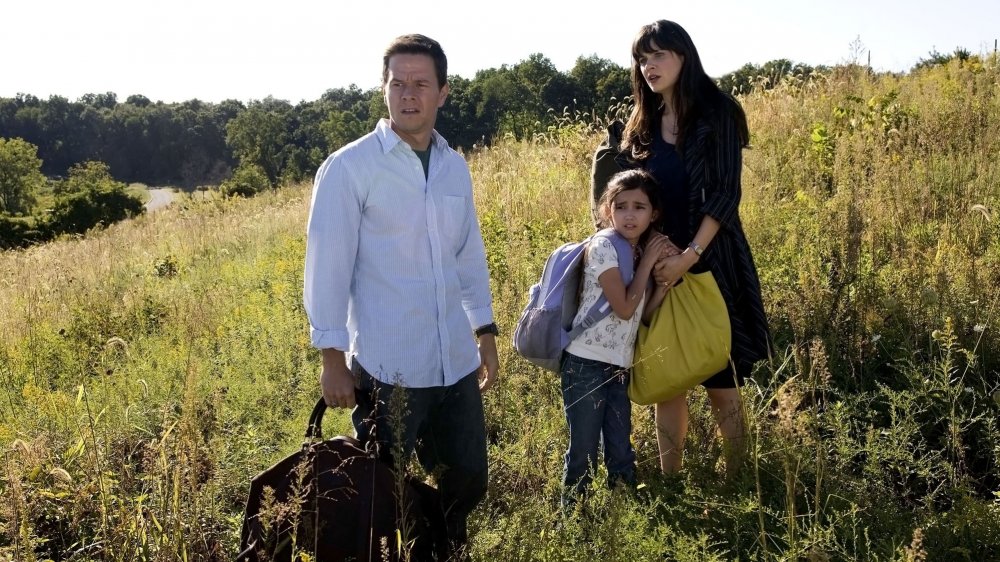9 Best And 9 Worst Pandemic Movies
In the beginning of 2020, one topic became unavoidable on every level. Yeah, we're talking about the coronavirus (or COVID-19). This specific viral strain, which is highly contagious, spread extraordinarily quickly throughout the globe, leading to shelter-in-place orders and lockdowns in cities and small towns across the world. With so many people quarantined to their homes during the height of the coronavirus crisis, which was legally declared a "pandemic," people turned to streaming movies and TV shows more than ever.
And for some people, they apparently wanted those viewing experiences to hit pretty close to home.
In the midst of a real-life pandemic, some viewers might, for whatever reason, want some sort of imagined glimpse into what might be on the horizon. But while there are plenty of pandemic films out there, not all of them are created equal. Whether you're in the middle of a pandemic-related quarantine or living your life normally, here are the nine best and nine worst pandemic movies you can watch today.
Contagion is one of the best pandemic movies ever made
In the midst of the coronavirus outbreak, Steven Soderbergh's 2011 film Contagion skyrocketed to the top of the rental charts, and it wasn't exactly a surprise as to why. Soderbergh's grim yet gripping portrayal of a worldwide pandemic seemed to echo exactly the state of a world adversely affected by COVID-19. And with an all-star cast that includes Matt Damon, Jude Law, Kate Winslet, Marion Cotillard, Bryan Cranston, and Gwyneth Paltrow, Contagion pulls a Scream by killing off one of its A-list cast members in the very first scene — if you've somehow avoided spoilers by now, we won't ruin it for you — and the scares and shocks continue at a breakneck speed until the film's very end.
When it was released in 2011, Contagion performed well with critics and at the box office, and scientists even went out of their way to praise the film's accuracy. However, nearly ten years later, the film has seen a massive resurgence, thanks in large part to its accurate and optimistic portrayal of the scientific community's ability to fight infection and disease, no matter how dangerous.
Resident Evil: Apocalypse is worse than an actual apocalypse
None of the Resident Evil film adaptations are particularly great, with most of them boasting pretty bleak scores on Rotten Tomatoes. But according to the numbers, Resident Evil: Apocalypse is the worst of them all. With the lowest rating in the entire series — specifically, 20 percent — this sequel to the 2002 original Resident Evil was released in 2004, and it clearly didn't stand up to its predecessor.
Apocalypse finds Resident Evil's protagonist, Alice (Milla Jovovich), held captive by the Umbrella Corporation, a pharmaceutical company investigating the zombie outbreak that happened during the first film. As Alice and other survivors try to outrun the zombies, which have overtaken the nearby Raccoon City, our hero discovers some unsettling secrets about Umbrella's recent experiments and exactly how they've created this quickly growing pandemic.
If you're looking for a pandemic movie to occupy your time, Apocalypse probably isn't it — unless you're looking for a truly terrible movie to distract you. Its low critical score led to some pretty rough reviews, including one from Roger Ebert where he called the film an "utterly meaningless waste of time." So all in all, it might be best to avoid Apocalypse even in the event of a real apocalypse.
Outbreak is endlessly rewatchable
Based on a nonfiction book by Richard Preston called The Hot Zone, Wolfgang Petersen's 1995 pandemic film Outbreak depicts, well, the outbreak of a serious disease (which somewhat resembles the Ebola virus) that begins in Africa and eventually spreads to the United States. When the virus reaches the small (fictional) town of Cedar Rapids, both the CDC and the Army's research wing dedicated to infectious diseases must fight the pandemic, along with civilians, while they all realize just how serious of a threat they face.
Despite the film's seriously stacked cast — which includes Kevin Spacey, Rene Russo, Morgan Freeman, Donald Sutherland, Dustin Hoffman, Patrick Dempsey, and Cuba Gooding Jr. — it received mixed reviews upon its release. But in the years since it came out, it's become endlessly rewatchable, especially when people are looking for a classic pandemic flick. If you want a film about surviving the worst possible virus, Outbreak is definitely a good choice for your upcoming Netflix queue.
Cabin Fever is a pandemic movie that doesn't need to exist
Anyone who's currently stuck inside during the COVID-19 outbreak is definitely familiar with the concept of cabin fever, but apparently, even a real-life quarantine isn't as bad as the 2016 film Cabin Fever. A remake of Eli Roth's 2002 film of the same name, Cabin Fever focuses on a group of young vacationers who develop a super-contagious illness after running into an infected hermit near their rental cabin, and though the original film garnered positive reviews, the 2016 remake didn't fare quite as well.
Director Travis Zariwny tried as hard as possible to stay faithful to the original film — going so far as to use Roth's exact script, despite the fact that he cut nearly a third of the plot — and though Roth eventually praised Zariwny's approach to the material, critics definitely didn't. Thanks to its slavish faithfulness, lack of reason to even exist, and decidedly D-list cast, which includes socialite Louise Linton, Cabin Fever garnered a rare 0 percent rating on Rotten Tomatoes, proving that Zariwny should've let sleeping dogs lie with this film.
28 Days Later is a truly terrifying zombie film
Zombie movies definitely qualify as "pandemic" fare, and when it comes to modern zombie classics, Danny Boyle's 2002 film 28 Days Later (which was written by Alex Garland, the mind behind films like Ex Machina and Annihilation) is definitely at the top of the pack.
A deadly and devastating virus ravages London after environmental activists inadvertently release infected chimpanzees from a research facility and into the city. And in the aftermath, Jim (Cillian Murphy) a bike messenger in a hospital with an unrelated coma, wakes up to find the normally bustling city deserted and in ruins with no idea what could have happened. Eventually, Jim meets and teams up with other survivors — Selena (Naomie Harris), Frank (Brendan Gleeson), and Hannah (Megan Burns) — as they try to escape the outbreak. But in the process, they discover a horrible secrets about the disease itself and about Major Henry West (Christopher Eccleston), who seems helpful ... at first. But hey, you can't always trust Doctor Who.
The film was a success with critics and at the box office, thanks to its political message and excellent central performances, and a few years later, it spawned a well-regarded sequel, 28 Weeks Later. Boyle and Garland have dropped numerous hints that a third film, which may be titled 28 Months Later, may be in the works someday, giving fans some hope that there's even more to the story.
Survival of the Dead might be George Romero's worst movie
When it comes to zombie films, few names loom as large as George A. Romero, the famous director who's largely credited with making this genre mainstream thanks to films like Night of the Living Dead and the original Dawn of the Dead. However, even creative geniuses can have their misfires, as Romero showed with 2009's Survival of the Dead. Officially the sixth entry in Romero's Night of the Living Dead series, the film follows a group of National Guard members presumed missing and briefly glimpsed in a previous installment, Diary of the Dead, and their struggles on the mysterious and fraught Plum Island.
Ultimately, the film garnered pretty terrible reviews across the board, with critics calling it entirely uninspired and lacking in ideas. The fact that the film performed so badly makes it even sadder that it was Romero's final film before he passed away in 2017, but Survival of the Dead notwithstanding, his legacy remains intact.
Train to Busan is a true gem from South Korea
South Korea's cinematic landscape is finally gaining international recognition — thanks to Parasite's historic victory at the 2020 Oscars, the country's incredible films are now getting the attention they deserve — but those in the know are familiar with some of the best South Korean films around, including Train to Busan.
Directed by well-known South Korean director Yeon Sang-ho, Train to Busan tells the story of a group of people stuck on a train that suddenly experiences a zombie outbreak out of nowhere. As the healthy people left on the train struggle to contain the disease and escape the zombies, their true natures are revealed as they try to reach the quarantine zone in Busan. And as the survivors lose family members and make enormous sacrifices to try to get to a safe place, the outbreak runs rampant throughout the train, splitting survivors into different cars as they do their best to survive.
Thanks to its incredible action sequences and effective storytelling, Train to Busan remains a South Korean favorite with critics and fans alike. In 2020, it was announced that a sequel, Bando (which means "peninsula") is on the way. On top of that, a remake is also coming, meaning audiences will be able to relive Train to Busan all over again before the next part of the story arrives.
Carriers gets too dark for its own good
Despite a cast full of well-known faces and an original premise, some pandemic movies just fall short, and the 2009 film Carriers is a perfect example. Directed by Alex and David Pastor, the film stars big names like Chris Pine (shortly after his huge role in Star Trek put him on the map), Emily VanCamp, Lou Taylor Pucci, and Piper Perabo as a group of young adults experiencing a major pandemic in the United States. Brian (Pine) and Danny (Pucci), two brothers, decide to gather some friends — including Brian's girlfriend Bobby (Perabo) and Danny's friend Kate (VanCamp) — and escape to a secluded beach, which they believe is safe from the virus. However, on their journey there, they find themselves facing infection.
Unfortunately for Carriers, the film's reception was impeded by an extremely limited release, and though many critics praised the performances, the film's extraordinarily dark ending drew criticism. If you really run out of other choices when it comes to pandemic movies, Carriers might be an option, but it's definitely not a first pick.
Shaun of the Dead is one of the best horror-comedies ever made
The idea of a zombie apocalypse is definitely terrifying, but that doesn't mean parts of it can't be hilarious. Luckily for audiences, Simon Pegg and Nick Frost explored the funny side of a frightening pandemic in Shaun of the Dead, their critically beloved 2004 comedy that kicked off their "Cornetto Trilogy" (two other horror parodies, Hot Fuzz and The World's End, followed in 2007 and 2013, respectively).
As Shaun and Ed, Pegg and Frost tell the story of two relatively laid-back guys who end up surrounded by a surprising zombie outbreak and must do their best to survive — or, at the very least, make it to the pub for some pints. With a plan in place that involves drinking at the Winchester until conditions are safer, Shaun and Ed try to gather their friends and family to keep them safe, and though it's pretty easy to outrun the super-slow zombies depicted in this particular outbreak, there's still plenty of stumbling blocks for the gang to overcome.
With a supporting cast that includes names like Bill Nighy and Lucy Davis, as well as a surplus of excellent jokes and plenty of laughs, Shaun of the Dead is a delight whether or not there's a real-life pandemic going on or not. And during the 2020 COVID-19 crisis, Pegg and Frost even reprised their roles for a PSA to reassure anxious fans during a trying time.
Nightmare City is a nightmarish pandemic movie
For every Dawn of the Dead or Shaun of the Dead, there's a zombie movie that's dead on arrival, and Nightmare City (or Incubo sulla città contaminata in Italian) falls into the latter category. The 1980 horror film (released as City of the Walking Dead in the United States in 1983) was directed by Italian director Umberto Lenzi and stars Mexican actor Hugo Stiglitz, and it tells the story of a television reporter caught in the midst of a pandemic during a routine news report. But unfortunately, the entire movie just falls flat.
As Dean Miller, Stiglitz plays the protagonist stuck in a sudden zombie outbreak. While waiting at a small European airport for a report, an unmarked plane makes an emergency landing, which as it turns out, is packed full of dangerous and bloodthirsty zombies. As Miller tries to make his escape and find his family, the military tries to fight back against the zombie invasion, though they're overpowered time and time again. Reviews at the time were less than glowing. And with critics calling it everything from a total disaster to preposterous, it's clear that Nightmare City isn't worth a visit.
Zombieland is an absolutely hilarious zombie flick
After Shaun of the Dead set a standard for zombie comedies in 2004, it didn't seem like anybody could possibly do a better job mocking the apocalypse, but luckily, Zombieland came along in 2009. With Jesse Eisenberg in the leading role as Columbus, the film follows a dorky, unlikely survivor with a strict set of "rules" for staying alive as he makes his way towards his home in Ohio. But along the way, he meets and teams up with three other survivors: Tallahassee (Woody Harrelson), a loose cannon who loves guns and Twinkies; Wichita (Emma Stone), a tough former con-woman turned zombie warrior; and Little Rock (Abigail Breslin), Wichita's spirited younger sister. (A well-placed Bill Murray cameo doesn't hurt the proceedings either.)
Thanks to a sharp sense of humor and four incredibly strong central performances from Eisenberg, Harrelson, Stone, and Breslin, Zombieland was an enormous critical and commercial success, even stealing Dawn of the Dead's crown to become the top-grossing zombie film in the United States until it was unseated by World War Z in 2013. Director Gavin Polone and the original cast all returned in 2019 for the long-awaited sequel, Zombieland: Double Tap, and though it didn't quite capture the magic of the original, it's always a welcome surprise to return to Zombieland from time to time.
Zombi 2 is gory, gruesome, and not great
Intended as a spiritual sequel to Romero's 1978 version of Dawn of the Dead — which was released in Italy as Zombi — Zombi 2, directed by Dardano Sacchetti, definitely didn't live up to Romero's classic film. The film tells a lurid tale of a small island in the Caribbean cursed by ancient voodoo, which subsequently spawns zombies as its dead residents rise from their graves to kill the living with nasty bites and deadly infections. When a scientist goes missing while exploring the island and his boat returns empty to New York City, his daughter (Tisa Farrow) takes it upon herself to try and figure out what happened to her father, only to discover the horrors that await her on the island.
Though it performed admirably well at the box office and even spawned a few sequels, Zombi 2 definitely isn't in the top tier when it comes to zombie and pandemic movies. Most of its poor reviews were due to its insanely, over-the-top graphic violence, which drew significant controversy upon the film's release. So if you're looking for something to pair with Dawn of the Dead, it looks like you can skip Zombi 2. Of course, it does have a sequence where a zombie fights a shark, so there's that.
If you want time travel with your pandemics, then check out 12 Monkeys
Though plenty of pandemic movies feature zombies or deadly viruses, some envision the aftermath and consequences caused by those types of apocalyptic problems, and 12 Monkeys is a perfect example. Directed by Terry Gilliam, the film stars Brad Pitt (who was nominated for an Academy Award for Best Supporting Actor for his role), Bruce Willis, Madeleine Stowe, and Christopher Plummer, and it finds its characters struggling to contain a virus that's forced all of humanity to live in an underground bunker away from the pandemic.
After the virus decimates humanity in 1996, survivors in 2035 — including James Cole (Willis), a prisoner living under what was once Philadelphia — use time travel to discover the origins of the outbreak and discover the truth about the Army of the 12 Monkeys, the group that may have released the virus in the first place. As a result, we get a movie full of goofy characters, timey-wimey twists, and some bleak visions of a very weird future.
Thanks to Gilliam's sharp direction and excellent storytelling, as well as impeccable performances across the board, 12 Monkeys was soundly praised when it was released in 1995, proving to be a success at the box office as well. Years later, it even spawned a spin-off television series that premiered in 2015, proving that Gilliam's absurd and creepy story had the potential to live on throughout different generations.
Pride and Prejudice and Zombies is one of the worst pandemic movies ever made
After Seth Grahame-Smith's 2009 novel, Pride and Prejudice and Zombies, was a surprise smash hit the second it arrived in stores, a film adaptation seemed inevitable. However, the film adaptation spent years in development hell, but like some sort of killer virus, it eventually broke out and ended up on the big screen. The 2016 film is helmed by Burr Steers and stars Lily James as Lizzie Bennet and Sam Riley as Mr. Darcy. Together, the unlikely couple, along with their family and friends, have to band together to defeat zombies while still making arrangements to marry and start their lives together.
However, maybe the movie should've stayed in development hell. Critics bashed the film for not being a particularly fun take on either Jane Austen's original material or the zombie spoof genre, and clearly, filmgoers felt the same way. The movie was a commercial bomb, earning just over $16 million on a budget of $28 million. You might think this film would have Austen rolling over in her grave, but more likely than not, it wouldn't even elicit a posthumous reaction from the late British satirist.
We're all winners with World War Z
Directed by Marc Forster and adapted by Damon Lindelof (Watchmen, Lost, The Leftovers) from the 2006 novel of the same name by Max Brooks, World War Z stars Brad Pitt as Gerry Lane, a former U.N. ambassador who embarks on a quest across the world to try and stop a global pandemic creating zombies at an extraordinarily fast rate. Because the zombies are attracted to sound, they're particularly difficult to stop, creating a unique challenge for Gerry and his team, particularly as he tries to protect his family and civilians at large from the oncoming threat of the super-contagious virus. Ultimately, Gerry travels from South Korea to Israel to Wales trying to stop the pandemic, and in the end, he prevails despite the most dire circumstances.
Despite a troubled post-production process that included lots of reshoots and rewrites, World War Z experienced some critical success upon its release, mostly thanks to Pitt's central performance and a brisk, urgent pace (though critics were largely unhappy with the film's uneven tone and divergence from its source material). If you're looking for a movie where the good guys win out over the virus, World War Z might be able to inject some optimism into your moviegoing experience.
Do not enter House of the Dead
Uwe Boll's House of the Dead, adapted from the Sega game, probably should have stayed in the morgue. With a cast made up largely of unknown actors, this 2003 film tells the story of a group of friends who plan on attending a rave on a mysterious island off the coast of Seattle called "Isla de la Morte" (or "Island of Death"), but when they arrive, the site of the rave is in ruins. As they frantically try to find anyone who can help them, the group is attacked by zombies, and when some of them are killed, the survivors must figure out a way to get off the island and evade the zombies while looking for a cure for the mysterious virus.
Critics weren't interested in spending time in the House of the Dead, ranking it as one of the worst 100 films of the 2000s, one of the worst video game adaptations, and calling it a "brainless mess of a film." However, if you're looking for a "so bad it's good" kind of romp, you might want to pay a visit to House of the Dead.
Adopt Children of Men into your queue
While audiences don't get to see the pandemic that apparently caused the ruin and rubble depicted in the 2006 film Children of Men, one thing is clear: nearly two decades of global infertility, which likely came about as a result of the virus, have pushed society to its breaking point. Since the United Kingdom is one of the only countries that still has a functional government, refugees keep trying to flee plague and war to come in, but with a conservative faction in charge, they're often stopped and even killed upon entry. To try and fight against the police state, former activist Theo Faron (Clive Owen) and his estranged wife Julian (Julianne Moore) try to help one refugee, Kee (Clare-Hope Ashitey), the first pregnant woman in 18 years.
Thanks to an outstanding supporting cast that includes Michael Caine, Chiwetel Ejiofor, Danny Huston, and Charlie Hunnam and sharp direction by Academy Award winner Alfonso Cuarón, the film earned nearly universal acclaim, and it's no surprise that Children of Men is still regarded as one of the best and most relevant pandemic movies ever made. If you're looking for a terrifyingly realistic yet gripping story, you'll definitely want to check out Children of Men.
The Happening... isn't
It's often been postulated that people are the most parasitic creatures on the planet Earth — and whatever you might think of that argument, it's a pretty nifty idea for a horror-tinged thriller about a world in which the planet's plants finally get fed up with us and start releasing an airborne toxin that triggers humans to take their own lives.
It's a nifty idea, but one that was bungled badly in M. Night Shyamalan's The Happening. Starring Mark Wahlberg as a high school science teacher who somehow deduces what Earth's flora are up to, the movie loses track of its intriguing premise pretty quickly, devolving from a potentially nail-biting pandemic story into a ham-fisted allegory dragged down by severe pacing problems and a woefully miscast lead. Shyamalan, then in the midst of a brutal stretch of disappointing films that included Lady in the Water and The Last Airbender, would eventually rebound with better movies, but The Happening remains one of the duller lowlights in his career. About the best we can say about this one is that it inspired a meme more durable than the movie.
